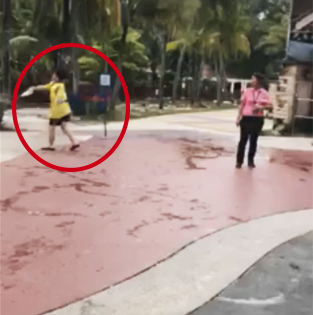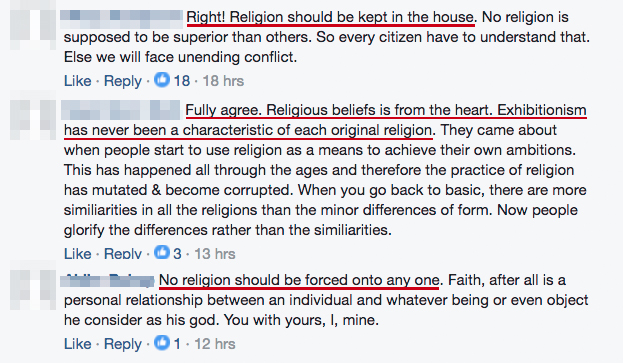Authorities Uncover The Truth About The 'Holy Water Tokong' At A'Famosa Theme Park
A viral post on Facebook about 'holy water tokong' has caused unease among some Malaysians.
A man has claimed that "holy water tokong" (holy water from a temple) was sprinkled at the A'Famosa water theme park recently
Zainudin Ariff Hassan warned Muslims to put off their plans to visit the recreational hot spot as he claimed that the water in the theme park might have been exposed to "holy water".
"I urged the Malacca Islamic Council to conduct investigations to verify if my children and I need to be cleansed or not," he said this in a Facebook post, adding that they had bathed in "contaminated water" and consumed food that was prepared there.
He also attached two accompanying videos that have accumulated more than 1.5 million views. His Facebook post has also received more than 18,000 shares and 7,000 comments as of today.
The videos depict a group of people in yellow vests, believed to be Buddhists, walking around the theme park with a water bottle in their hands
However, the authorities have refuted all allegations related to this incident
Responding to the matter, Malacca Islamic Religious Department (JAIM) has debunked claims that "holy water" had been used at the famous water theme park.
JAIM chief enforcement officer Rahimin Bani told the media that investigations have shown that the controversial liquid was only "mineral water" supplied by the resort to a Buddhist association that held an event there.
"The Buddhist group had only used bottled water which was supplied by the theme park itself. Nothing was mixed into the water. It was merely a symbolic ritual by the Buddhist group. It is part of an annual ritual to ask for safety and prosperity in accordance with Buddhist beliefs," he was quoted as saying by Sinar Harian.
Rahimin also reportedly advised the public against sharing unverified news that can cause chaos and confusion.
The incident has stirred up discussions if public spaces should be kept "neutral" of religion
Netizens said that people should be more sensitive as conducting religious rituals at public spaces would mean disregarding, to a certain extent, the presence of others at the same area who may not share the same belief and may cause them to feel uncomfortable.
Meanwhile, others opined that everyone should be free to express their religious beliefs as long as they do not go overboard.

